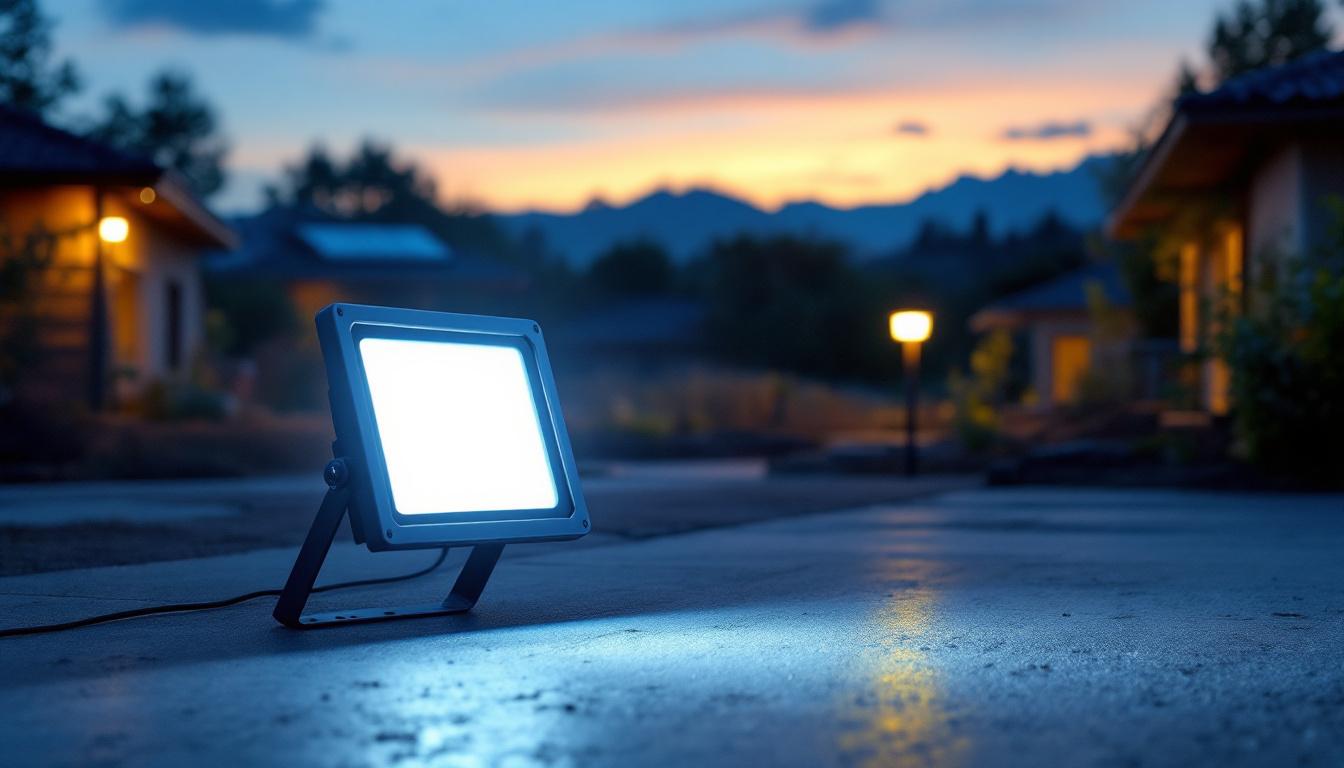
In recent years, solar lighting has emerged as a popular choice for gardens, parks, and outdoor spaces. With advancements in technology, these lights have become more efficient, reliable, and aesthetically pleasing. For lighting contractors, understanding the benefits and applications of solar lights can significantly enhance service offerings and customer satisfaction.
Solar lights harness energy from the sun, converting it into electricity to power LED fixtures. This not only reduces energy costs but also minimizes the carbon footprint, making them an environmentally friendly option. As the demand for sustainable solutions continues to grow, lighting contractors have a unique opportunity to capitalize on this trend.
One of the most appealing aspects of solar garden lighting is its versatility. Available in various styles, from sleek modern designs to charming vintage lanterns, these fixtures can complement any garden aesthetic. Whether illuminating pathways, highlighting landscape features, or creating ambient lighting for outdoor gatherings, solar lights can be strategically placed to enhance the beauty and functionality of outdoor spaces. Additionally, many solar lights come equipped with motion sensors and dimming features, allowing for customizable lighting solutions that cater to specific needs and preferences.
Moreover, the installation of solar garden lights is typically straightforward, requiring minimal tools and no need for electrical wiring. This ease of installation not only saves time but also reduces labor costs for contractors. Furthermore, with the growing interest in DIY home improvement projects, many homeowners are opting to install solar lighting themselves, which opens up opportunities for contractors to offer guidance and support. By providing expert advice on the best products and placement strategies, lighting professionals can foster strong relationships with clients while promoting the benefits of solar technology in outdoor illumination.
One of the most compelling advantages of solar garden lights is their cost-effectiveness. Unlike traditional lighting systems that require extensive wiring and ongoing electricity costs, solar lights operate independently. Once installed, they incur minimal maintenance costs, making them an attractive option for budget-conscious clients.
Moreover, the initial investment in solar technology has decreased significantly over time. With a variety of models available, contractors can offer clients a range of options that fit their financial constraints while still providing quality lighting solutions.
As the world becomes more conscious of environmental issues, the demand for sustainable products continues to rise. Solar lights contribute to this movement by utilizing renewable energy sources. By reducing reliance on fossil fuels, these lights help decrease greenhouse gas emissions, making them an eco-friendly choice for outdoor lighting.
Furthermore, many solar lights are designed with recyclable materials, enhancing their sustainability profile. Lighting contractors can promote these benefits to clients, positioning themselves as environmentally responsible service providers.
Installation of solar lights is typically straightforward, requiring no extensive wiring or electrical work. This ease of installation can save contractors valuable time and labor costs, allowing them to complete projects more efficiently. Additionally, solar lights can be placed in various locations without the need for access to power outlets, offering greater flexibility in design and layout.
This adaptability is particularly beneficial for gardens and outdoor spaces, where lighting needs may vary based on landscaping and seasonal changes. Contractors can easily reposition or add solar lights as needed, ensuring that clients have the best possible lighting solutions throughout the year.
Pathway lights are essential for illuminating walkways, driveways, and garden paths. They enhance safety by providing visibility during the evening hours while also adding an aesthetic appeal to outdoor spaces. Solar pathway lights come in various styles, from modern to classic, allowing contractors to match the design to the client’s preferences.
These lights usually feature built-in sensors that automatically turn on at dusk and off at dawn, optimizing energy usage. Contractors should consider recommending models with adjustable brightness settings, providing clients with further control over their outdoor lighting.
For clients looking to highlight specific features in their gardens, such as trees, sculptures, or architectural elements, solar spotlights and floodlights are ideal solutions. These lights offer a more focused beam, allowing for dramatic effects and enhanced visibility of key features.
Spotlights can be particularly effective in creating ambiance for outdoor gatherings or events. Contractors should ensure that the selected models have adequate lumens to achieve the desired brightness and coverage. Additionally, adjustable angles can help clients direct light exactly where it is needed.
String lights have gained popularity for their whimsical and festive appeal. They can transform outdoor spaces into enchanting environments, perfect for entertaining or relaxing. Solar string lights are available in various designs, including fairy lights, lanterns, and globes, catering to different tastes and themes.
Contractors can suggest creative ways to use string lights, such as draping them over pergolas, wrapping them around trees, or lining fences. The versatility of these lights allows for unique installations that can enhance the overall aesthetic of any garden.
Before installation, a thorough site assessment is crucial. Contractors should evaluate the area to determine the best locations for solar lights, considering factors such as sunlight exposure, landscape features, and client preferences. Ensuring that lights receive adequate sunlight during the day will maximize their efficiency and performance at night.
Additionally, contractors should assess the potential for obstructions, such as trees or buildings, that may cast shadows on the lights. Proper planning during this phase can prevent issues down the line and enhance the overall effectiveness of the lighting system.
Placement of solar lights is key to achieving the desired effect. For pathway lights, a spacing of 6 to 8 feet apart is generally recommended to ensure adequate illumination without creating overly bright spots. Spotlights should be positioned to highlight specific features while avoiding glare or harsh lighting.
String lights should be hung at a height that allows for maximum visibility without obstructing views or creating hazards. Contractors should also consider the overall design and flow of the garden when determining placement, ensuring that the lighting complements the landscape.
While solar lights require minimal maintenance, contractors should advise clients on how to care for their systems. Regular cleaning of the solar panels is essential to ensure optimal performance, as dirt and debris can hinder sunlight absorption. Additionally, checking for any obstructions or damage to the lights can help maintain their functionality.
Contractors can also recommend seasonal checks, particularly before peak usage periods, to ensure that all systems are operating efficiently. Providing clients with maintenance tips reinforces the contractor’s expertise and enhances customer satisfaction.
Weather conditions can significantly impact the performance of solar lights. In regions with prolonged periods of cloud cover or heavy rainfall, solar lights may not receive enough sunlight to charge adequately. Contractors should discuss these factors with clients, ensuring they understand the potential limitations of solar technology.
Recommending models designed for various weather conditions can help mitigate these challenges. For instance, some solar lights come equipped with larger batteries or advanced solar panels that can perform better in less-than-ideal conditions.
The longevity and performance of solar lights are often dependent on the quality of their batteries. Contractors should educate clients about the different types of batteries available, such as lithium-ion or nickel-cadmium, and their respective advantages and disadvantages.
Clients should also be informed about the typical lifespan of batteries and the importance of replacing them when necessary. By setting realistic expectations, contractors can enhance customer satisfaction and promote long-term use of solar lighting solutions.
The integration of smart technology into solar lighting systems is a growing trend that offers exciting possibilities for lighting contractors. Smart solar lights can be controlled remotely via smartphone apps, allowing users to adjust brightness, set timers, and even change colors. This level of control enhances the user experience and adds value to the lighting system.
Contractors should stay informed about emerging technologies and consider offering smart solar lighting options to clients. This not only enhances service offerings but also positions the contractor as a forward-thinking professional in the industry.
Advancements in energy storage technology are paving the way for more efficient solar lighting systems. New battery technologies promise longer-lasting power and quicker charging times, improving the overall performance of solar lights. Contractors should keep an eye on these developments to provide clients with the best possible solutions.
As energy storage solutions continue to evolve, lighting contractors can offer systems that are not only efficient but also capable of powering multiple fixtures for extended periods, even in less favorable weather conditions.
Solar lights present a myriad of benefits for garden lighting, making them an attractive option for both contractors and clients. From cost savings and environmental impact to ease of installation and flexibility, the advantages are clear. As the demand for sustainable solutions continues to grow, lighting contractors who embrace solar technology will find themselves well-positioned in the market.
By understanding the various types of solar lights, installation tips, challenges, and future trends, contractors can enhance their service offerings and meet the evolving needs of their clients. As the industry moves toward more innovative and efficient solutions, staying informed and adaptable will be key to success in the solar lighting landscape.
Ready to elevate your lighting projects with the efficiency and sustainability of solar garden lights? Look no further than LumenWholesale, where we provide lighting contractors with the highest quality, spec-grade lighting products at the best wholesale prices. Our extensive selection is designed to meet the highest industry standards, ensuring you deliver reliable, high-performance lighting for every outdoor space. Plus, with free shipping on bulk orders, you can enjoy premium lighting solutions at the best value — without any hidden fees. Make your next project shine by choosing LumenWholesale, where quality, affordability, and convenience come together seamlessly. Discover our range and take advantage of unbeatable wholesale prices today by visiting Wholesale Lighting at the Best Value.

Discover the latest trends in architectural lighting that every contractor needs to know.

Discover the essential resources lighting contractors rely on to master fan switches.

Discover the ultimate guide to recessed light retrofitting, covering essential tips, benefits, and step-by-step instructions for transforming your space with modern, energy-efficient lighting solutions..

Discover how the brightest solar-powered flood lights can revolutionize cost efficiency for lighting contractors.